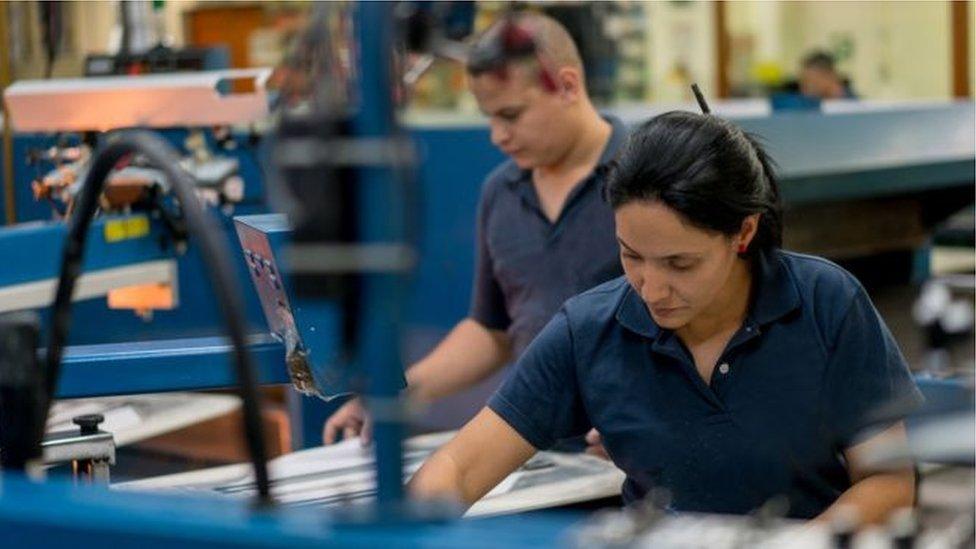Educational underachievement 'a factor in NI's poor productivity'
- Published

NI is consistently one of the least productive regions of the UK
Educational underachievement and weak management are major factors in Northern Ireland's poor productivity, a review has suggested.
Academics at Queens University Belfast examined existing research on NI's productivity problem.
Productivity measures the amount of economic output generated by each worker.
In the long term, rising living standards are dependent on rising productivity.
Northern Ireland is consistently one of the least productive regions of the UK and also compares badly to the Republic of Ireland.
David Jordan and John Turner looked at the various factors which are thought to contribute to Northern Ireland's weak performance.
It is part of a wider project by the Productivity Institute, an organisation that works across academia, business and policy to better understand and enable productivity.
The structure of Northern Ireland's economy, a poor investment performance and its geographical peripherality have all been suggested as important factors.
The review says there is no single explanation but that "the evidence presented for the role of human capital in Northern Ireland's productivity problem is strong".
It adds that: "NI's workforce appears weak in both basic skills, and its share of higher skills.
"That management also lags behind best practice may exacerbate the deficiencies of the workforce, while a lack of ambition may create further barriers to productivity improvements."
The writers suggest that more work is needed to find out in which sectors the this lack of skills is most detrimental.
They also suggest that there is little proof that government policies have done much to improve Northern Ireland's productivity.
"While improving the competitiveness of the NI economy has been a central aim of policymakers for many decades, there is little evidence to suggest policy interventions have been successful in closing the productivity gap," they write.
"Part of the explanation may be that, while improving productivity is often included as an aspiration within economic strategy documents, it is rarely used as a means to evaluate the success of policies or measure outcomes."
They conclude that more research is required to fully understand the problems which could then inform more effective policy.
Related topics
- Published5 February 2020
